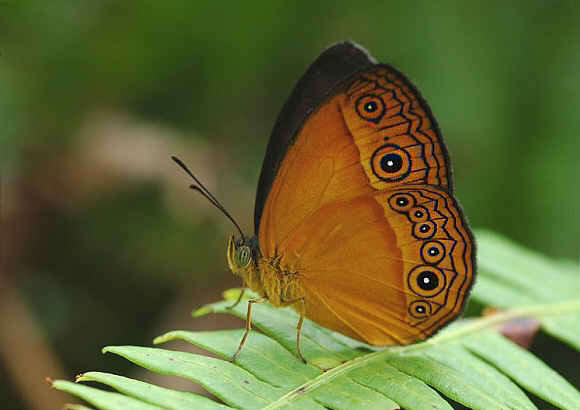
Introduction
Mycalesis is one of the largest Satyrine genera, comprising of 88 known species, of which 2 have yet to be given scientific names. The genus is confined to the Oriental and Australian regions.
The butterflies are instantly recognisable as a group, all being some shade of brown on both wing surfaces, and marked with a series of conspicuous ocelli, and a single straight median line across the underside of both wings. Many of the species are very similar, but can usually be distinguished from each other by close examination of the configuration of the ocelli and submarginal lines.
Mycalesis terminus is found in Irian Jaya, Papua New Guinea and New Britain. It undoubtedly also occurs on many of the smaller islands surrounding New Guinea.
Habitats
This species inhabits forest glades and open woodland where dappled sunlight filters down to the forest floor.
Lifecycle
I have no data regarding phidon. The lifecycle of most Mycalesis species adheres to the following pattern: The eggs are yellow and spherical. They are laid in clusters of up to 6 on the underside of grass blades, most commonly on Imperata and Themeda ( Poaceae ). The fully grown caterpillar is typically brown with a faint dark dorsal line. It feeds nocturnally and rests by day at the base of a grass tussock. The chrysalis is suspended by the cremaster from a grass blade or nearby stem.
Adult behaviour
The adults are usually seen resting on low foliage in semi-shaded areas in forest glades or similar semi-open habitats. They never outspread their wings when at rest, but sometimes momentarily flick them open, displaying the diematic ocelli on the upperside as a bluff warning to predators.
